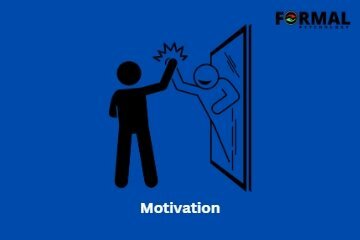Useful for learners -: Students Teachers Trainers Parents Therapist Managers B.F. Skinner (1904–1990) was an American psychologist, behaviorist, and author who is best known for developing the theory of operant...
Psychology, a dynamic and ever-evolving field, aims to understand the human mind, behavior, and emotions. Research in psychology is foundational to its progress, providing the empirical basis for exploring complex...
Emotions play a crucial role in human experience and behavior, and psychology recognizes various types of emotions based on their characteristics, functions, and the contexts in which they arise. Here’s...
The Life of Freud (1856–1939) Early Years Freud was born in 1856 in Freiberg, Moravia (now Příbor, Czech Republic). His father, a wool merchant, struggled financially and moved the family...
Memory is the mental process of encoding, storing, and retrieving information. It enables humans to retain information over time, influencing cognition, learning, and behavior. Memory allows individuals to recall past...
Paul Ekman, a pioneering American psychologist, is best known for his groundbreaking research on emotions and their relation to facial expressions. His work has significantly contributed to the understanding of...
Gestalt psychology, a school of thought that emerged in the early 20th century, focuses on the holistic understanding of psychological phenomena. Unlike approaches that break experiences into individual components, Gestalt...
Introduction to Motivation Motivation refers to the driving force or energy that moves people towards their goals or objectives. It is a psychological process that is responsible for initiating, directing,...
Observational learning – Albert Bandura Observational learning theory, also known as social learning theory or modeling, is a theory of learning developed by psychologist Albert Bandura. According to this theory,...
Operant Conditioning Operant conditioning is a theory of learning that was first proposed by the psychologist B.F. Skinner in the 1930s. It is based on the idea that behavior is...
Introduction of Insight Theory Insight theory is a psychological theory that explains how people solve problems, make decisions, and discover new ideas or solutions through sudden bursts of understanding or...
Classical Conditioning Classical conditioning is a type of learning that was first studied by Russian physiologist Ivan Pavlov in the late 19th century. It involves learning to associate a previously...
Theories of learning learning is a fundamental concept in psychology as it helps us understand how individuals acquire new behaviors, skills, and attitudes, and how these changes can be influenced...
what is Motivation Motivation is the psychological process that drives individuals to take action towards achieving a goal or objective. It is the force that initiates, guides, and maintains goal-oriented...
Self and Identity in Indian thought Self and identity are important concepts in Indian thought, with various schools of philosophy and religion offering different perspectives on the nature of the...
Concept of Intelligence Intelligence can be defined as the ability to learn, reason, understand, and solve problems. It encompasses a range of cognitive abilities and skills, including memory, perception, attention,...
Introduction to personality Personality refers to the unique set of traits, characteristics, and patterns of behavior that define an individual’s identity and shape their thoughts, emotions, and actions. Personality is...
Motivation: concept and its types Motivation refers to the driving force behind an individual’s behavior, actions, and decisions. It is the internal or external factors that stimulate the desire and...
Language Lorem ipsum dolor sit amet, consectetur adipiscing elit. Ut elit tellus, luctus nec ullamcorper mattis, pulvinar dapibus leo.
Emotion in psychology can be defined as a complex psychological state that involves a range of subjective feelings, such as joy, fear, anger, sadness, and love, among others. Emotions are...
Memory in psychology Memory in psychology refers to the process of encoding, storing, and retrieving information. It is the ability of the brain to retain and recall past experiences, knowledge,...
Learning in psychology In psychology, learning refers to the process of acquiring new knowledge, skills, behaviors, or attitudes through experience, practice, and observation. Learning in psychology can occur through various...
Sensation in psychology Sensation in psychology refers to the process by which our sensory receptors and nervous system receive and respond to stimuli from the environment. Sensation is the first...
Perception in psychology Perception in psychology refers to the way in which we interpret and organize sensory information from the environment into meaningful experiences. It is the process by which...
All major events in psychology from 2200 BC to Present B.C. 2200 BCChinese’s starts Civil Service Examinations. 400 BCFirst theory of personality Hippocrates propounds first theory of personality based on...
















